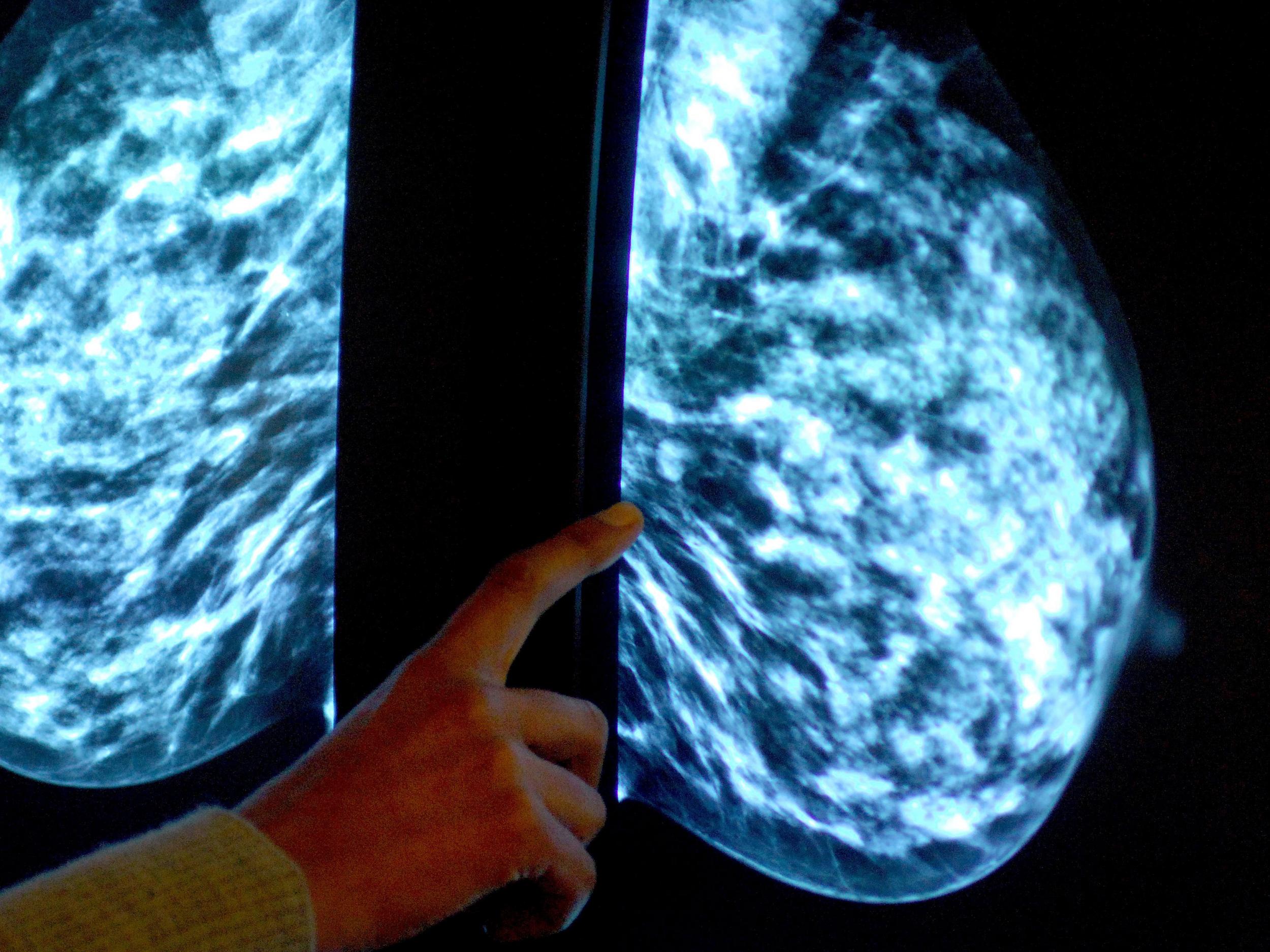Breast cancer test could predict chances of disease’s return 20 years later, study shows
'Molecular nature of a woman’s breast cancer determines how their disease could progress, not just for the first five years, but also later,' says researcher

A new test could identify breast cancers that are likely to return more than 20 years later – a development that might herald an era of personalised medicine.
The way a patient’s cancer will progress can be determined by categorising molecular and genetic markers of breast tumours into 11 subtypes, University of Cambridge researchers found.
Following around 2,000 women over 20 years, the team funded by the Cancer Research charity found some women with initially aggressive cancers had a low chance of tumours returning after five years.
However, other tumours that might initially respond to treatment were found to be more likely to reappear up to 20 years later, potentially in an incurable form.
“We’ve shown that the molecular nature of a woman’s breast cancer determines how their disease could progress, not just for the first five years, but also later,” said Dr Oscar Rueda, lead author of the paper published in the journal Nature. “We hope that our research tool can be turned into a test doctors can easily use to guide treatment recommendations.”
Mastectomy: Stand Up To Cancer launches powerful photo campaign
Show all 13Using molecular markers is a booming field for cancer research. Previously, tumours have been classified by the area in which they originate, and other features such as size.
The researchers said around 12,300 women in the UK could belong to one of these “late recurring” subgroups, which are currently clumped together within cancers classed as oestrogen receptor positive tumours.
If doctors are able to test for molecular features, these patients could benefit from longer courses of chemotherapy, or more frequent follow-up screening checks.
The new model also helps predict where cancers are likely to spread and how aggressive – or treatment-resistant – they are likely to be when they return. The tests would have the added benefit of giving women reassurance about their personal risks.
“It’s quite scary and definitely a worry,” said Catherine Scott, 51, from Cambridge. She joined the study after being diagnosed with triple negative breast cancer – a form with the fewest treatment options – in 2016.
When her treatment ended, she asked her doctor about her chances of it returning because her next check up was not for a year. The doctor could only predict the chances based on old cases.
“If they were able to make it more personalised that would be more reassuring,” Ms Scott said. “It would definitely be better than feeling you have to cross your fingers.”
The research comes after another Cambridge University group released an online calculator for men with prostate cancer. The tool helps them understand their cancer risks and the side-effects of treatments.
The findings also follow the launch of schemes such as the NHS Genomic Medicine Service, which offers free testing to patients with rare disease or cancers. Such developments bring the prospect of an affordable personalised cancer test in hospitals closer.
“We hope these 11 molecular subtypes could in future help us better predict long-term outcomes and lead to more personalised treatment plans for patients based on the properties of their tumour,” said Dr Simon Vincent, director of research of the charity Breast Cancer Now.
“Crucially, this major study could help us tease apart the diverse set of hard-to-treat breast cancers currently grouped together as ‘triple negative’, and identify certain patients that are unlikely to experience a recurrence more than five years after their treatment.”
Subscribe to Independent Premium to bookmark this article
Want to bookmark your favourite articles and stories to read or reference later? Start your Independent Premium subscription today.

Join our commenting forum
Join thought-provoking conversations, follow other Independent readers and see their replies